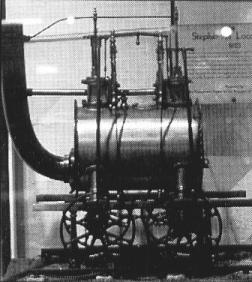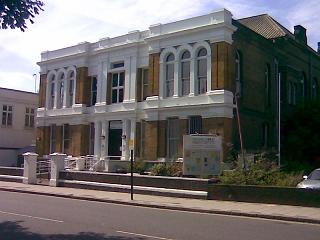THE BRITISH OVERSEAS RAILWAYS HISTORICAL TRUST
|  |
| VOLUNTEERING | LEGACIES | THE TEAM | HISTORY OF THE TRUST | HOW TO FIND US. |
There are many opportunities for volunteers as BORHT is a wholly voluntary operation, and the more volunteers the more we can do. See our, events page for times when the Library and shop are open and which shows we are attending. Come along and meet up! |
A slightly more delicate issue is that BORHT could not operate without the money which we have received from legacies and so please bear us in mind when planning your inheritance tax. Bequests to BORHT do not form part of your estate for inheritance tax calculation. As well as money, this applies to books and historical items. We all accumulate them but know that when we are no longer around, our families will have the difficult task of finding them a good home. |
THE TEAM
President:-Dr Michael Bailey, M.B.E.
Chairman:-Julian Rainbow
Vice-President:-Col. Steve Davies, M.B.E.
Council of Management
Company Secretary:- Mostyn Lewis
Treasurer:- Julian Rainbow
Journal Editor:- Julian Rainbow
Founder:- John Scott Morgan
Motion Picture Consultant:- Nick Lera
Edwin Lambert
Mike Hudson
Dick Waller
The Trust was incorporated in 1984, having grown out of the African Railway Society (founded by John Scott-Morgan) into The British Overseas Railways Historical Society. Incorporation was required as the Society had been offered a pavilion at Britannia Park. When Britannia Park collapsed financially shortly after opening its first pavilions to the public, the Trust went on to develop a scheme for a museum and tourist railway on the Manchester Ship Canal at Mode Wheel. This had reached the stage that detailed plans had been completed for the museum and two miles of railway (we had built a triple gauge level crossing to maintain the right of way), initial finance was in place and a number of exhibits arranged from overseas railways. However, the whole Mode Wheel project, including the finance, was lost following a hostile take-over of the Canal Company in 1987. Also lost to the Trust as a result was the main Livesey & Henderson archive, which went to the NRM. Since then the Trust has looked at a number of potential museum sites, but none has attracted sufficient finance to be viable. However, following a significant recent bequest, the Trust is looking for better accommodation for the collections, which have out-grown the space at Greenwich. The time is right for another attempt to find a museum site. The full story of the Trust and its activities and achievements is told in issue 32 of The British Overseas Railways Journal. | |
Our logo (see top of page) represents the start of our exportation of railways and railway equipment. It shows the demonstration model of a Stephenson Killingworth type locomotive built by Stears of Leeds in 1823 and sold to William Strickland in 1825. Strickland was sent to England in 1825 by the Philadelphian Society for the Promotion of Internal Development to study and report on the Stockton and Darlington Railway. The locomotive is now in the Franklin Institute Science Museum. This is the earliest export railway locomotive from any country for which there is clear proof. It is the first steam locomotive in the USA as Tom Thumb was not built until 1830 and John Bull until 1831. |  Photo © Dr Paul E Waters Photo © Dr Paul E Waters |
|
HOW TO FIND US
We are open at the times advertised on the events page. Visitors are welcome at other times by appointment, except Sunday. There is a café open from 08.00hrs to 17.00hrs Monday to Saturday at the back of the building in Lovibond Lane. We are located close to Greenwich Station (National Rail and DLR). On arriving at Greenwich use the exit at the DLR (west) end of the station and go out on the DLR (south) side of the station. On reaching the main road (Greenwich High Road) turn right, pass National Tyres and West Greenwich House is next on the right. By road, enter SE10 8JA into your satnav, but be warned that parking is difficult and so it is best to come by train. Buses 177, 180, 199 and 386 serve Greenwich Station. Ask at Reception for directions to our office in the basement. |  West Greenwich House, built 1876-7 to the design of W Wallen and modified in 1944 by the V1 flying bomb which cleared the site for National Tyres. It was the Greenwich Town Hall, from 1900 to 1939. Photo © Dr Paul E Waters, 2011. |
View Larger Map
|
| Registered Charity No 290944 | Company Limited by Guarantee No 1862659 |